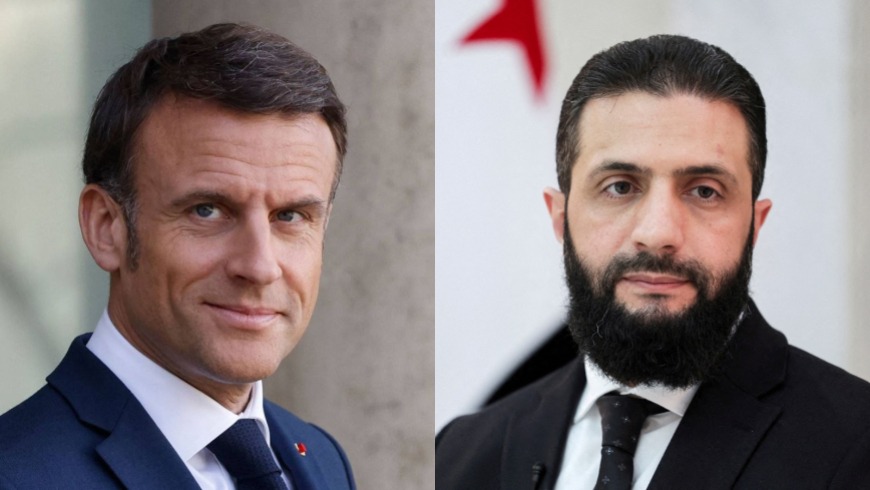French news agency AFP reported on Tuesday, citing the Élysée Palace, that President Emmanuel Macron will receive Syrian President Ahmad al-Sharaa in Paris on Wednesday, marking his first official visit to Europe.
According to the French presidency, Macron will “reaffirm France’s support for the construction of a new Syria – a free, stable, and sovereign state that respects all components of Syrian society.”
The statement added that the meeting reflects France’s “historic commitment to the Syrian people, who yearn for peace and democracy,” noting that Macron will reiterate “his key demands to the Syrian government—chief among them, ensuring regional stability, particularly in Lebanon, and intensifying efforts to combat terrorism.”
A Conditional French Invitation
In early February, Macron extended an invitation to the Syrian transitional president to visit France. However, by late March, the invitation was made conditional on the formation of an inclusive Syrian government representing “all components of civil society” and the establishment of security guarantees to enable the return of Syrian refugees.
Since assuming office in Damascus, the interim president has sought to project a reassuring image to the international community, which continues to urge him to uphold civil liberties and safeguard minority rights. Sharaa is also working to lift the international sanctions imposed on Syria under the rule of Bashar al-Assad.
Nonetheless, the massacres that took place in western Syria in March—claiming the lives of 1,700 people, the majority of them Alawites—along with recent clashes between government forces and Druze fighters, and the human rights violations documented by non-governmental organisations, have raised serious doubts about the new authorities’ capacity to rein in some of the more “extremist” factions affiliated with them, AFP noted.
This article was translated and edited by The Syrian Observer. The Syrian Observer has not verified the content of this story. Responsibility for the information and views set out in this article lies entirely with the author.


